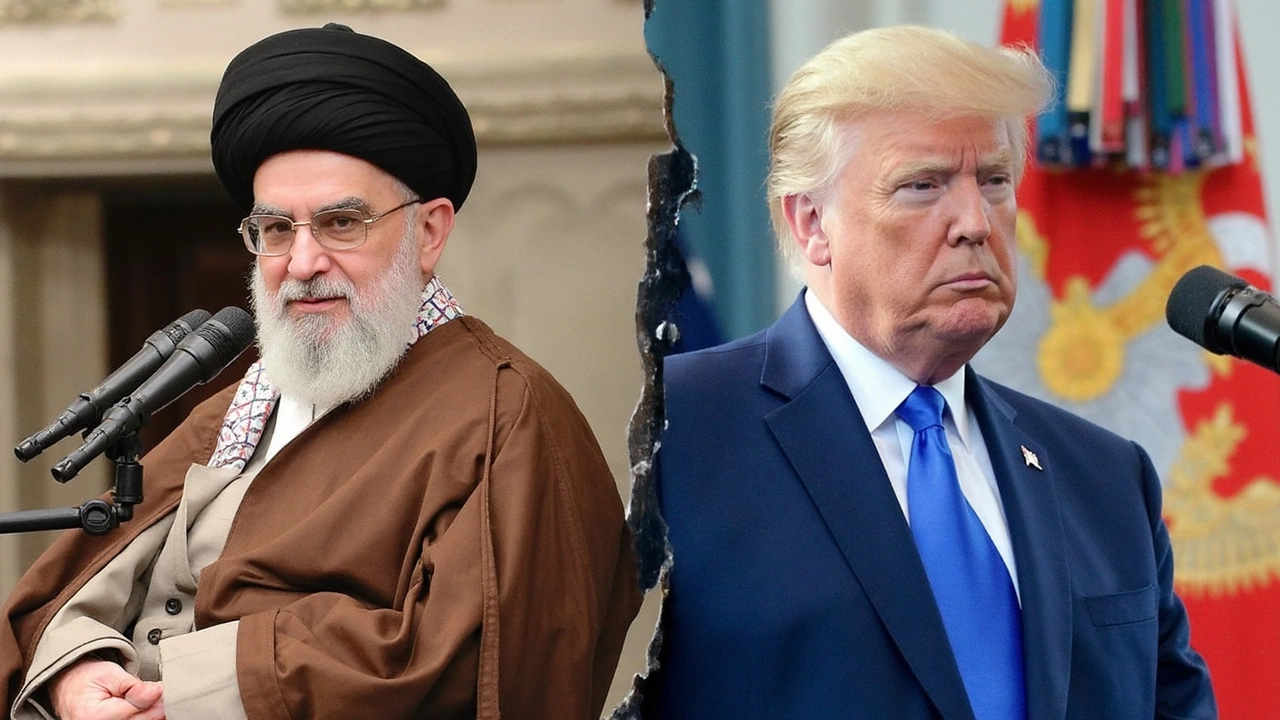Trump Signals Possible Israeli Strike on Iran as Tensions Boil
If you thought Middle East politics couldn't get any tenser, President Trump just turned up the heat. He told reporters that an Israeli strike on Iran "could very well happen," underscoring his administration's view that letting Iran develop a nuclear weapon is simply not an option. Even as nuclear negotiations inch forward, Trump made it clear he's pushing for a harder line from Tehran—a deal, yes, but only if Iran concedes far more than it has so far.
The ongoing talks between the U.S. and Iran are, by Trump's measure, "fairly close to a pretty good agreement." Still, he's not satisfied. His main sticking point? Iran's nuclear enrichment capabilities. Trump wants more than a handshake—he wants solid guarantees, sharp limits, and concrete evidence that Iran's nuclear program won't suddenly shift from civilian use to military ambitions. "We just can't take any risks here," Trump said, standing firm that peace can't come at the cost of U.S. and regional security.
This warning isn't happening in a vacuum. Across the Middle East, the tension is so thick you can almost feel it. The White House has started advising Americans to evacuate key hotspots. Defense Secretary Pete Hegseth has sounded the alarm, warning Congress that Iran's recent moves look a lot like the early steps in building a nuclear bomb. But here’s where things get murky: not long ago, the Director of National Intelligence said the opposite, insisting Iran isn't constructing a weapon—at least not yet. So, who do you trust: the cautious intelligence community or the hawkish defense officials?
Meanwhile, the situation on the ground keeps shifting. Israeli jets have reportedly hit multiple Iranian nuclear and missile facilities in targeted strikes meant to send a clear message: Israel's patience is wearing thin. Trump refused to say whether the U.S. played any part in those strikes, leaving plenty of room for speculation. Secretary of State Marco Rubio took a more guarded approach, saying the U.S. isn’t picking sides but is focused on keeping Americans—and American interests—safe in the region. That’s a diplomatic dance if ever there was one.
Mixing Pressure With Promises as Nuclear Talks Reach a Pivotal Moment
What’s interesting is that while Trump's tone is tough, he’s still dangling a carrot. He told the press he genuinely wants Iran to “be successful” and hinted at the promise of trade deals if Iran meets tougher nuclear terms. The message? Give up the nukes, and there's a path to prosperity with America. But for now, the administration is keeping up the pressure, making it clear Iran can’t just expect the current deal to sail through without serious changes.
People following the story wonder if this is brinkmanship or a last warning before things really spiral. With increased calls for Americans to leave the region and reports of escalating military activity, no one’s taking any chances. The unpredictability of Israeli action mixed with public U.S. warnings creates an atmosphere where one misstep could trigger a much wider conflict.
For folks in the Middle East—and anywhere within missile range—this is more than just political theater. Each pronouncement, each strike, and every evacuation advisory feels like another ratchet of the tension. Whether Trump’s warnings and Israel's recent actions are a calculated step to force Iran into a corner at the negotiating table, or the opening moves of something far more dangerous, everyone is watching and waiting to see what comes next. As for the nuclear negotiations, the stakes haven’t been this high in years, and nobody’s betting on a quick, easy resolution.

